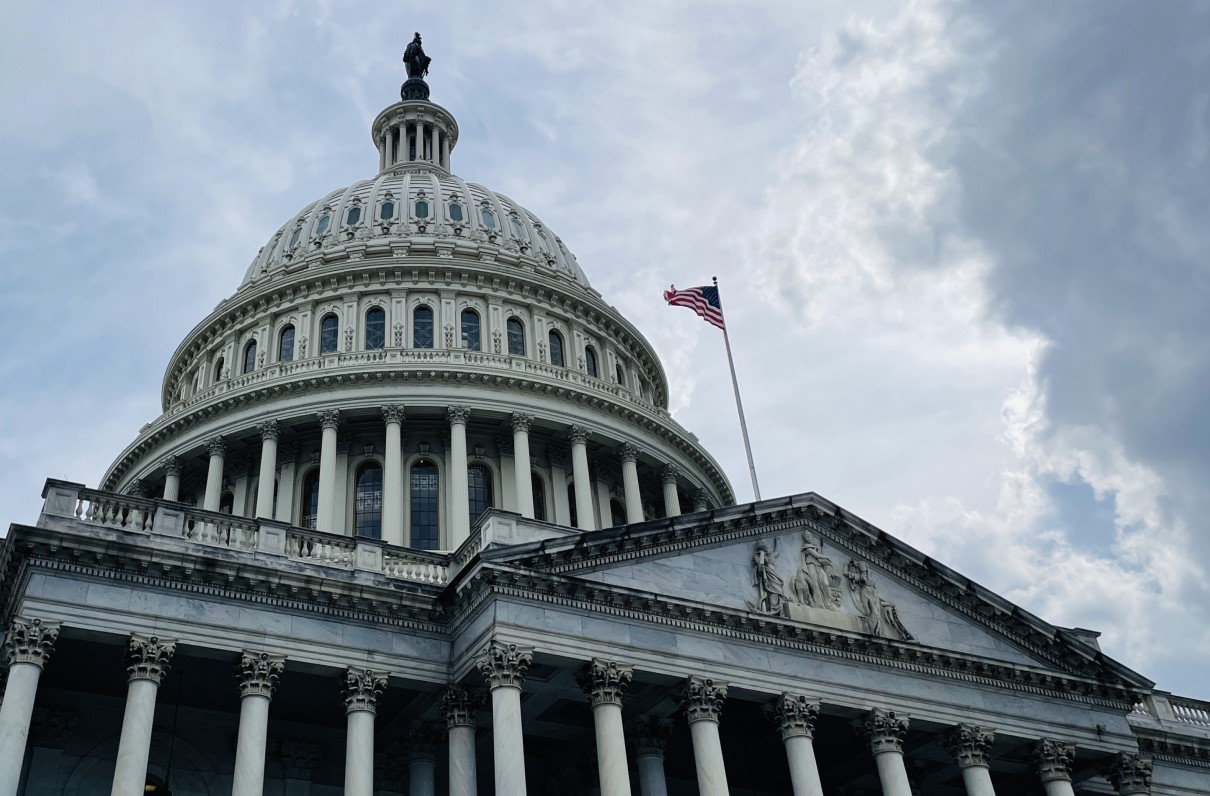This story was updated on Dec. 23.
Congress passed the omnibus appropriations bill to fund the government for FY 2023 on Friday afternoon. The bill will now go to the President for his signature to fund the government through Sept. 30, 2023.
The $1.7 trillion funding package includes the largest-ever defense spending and a major jump to VA funding to help support the Sergeant First Class Heath Robinson Honoring Our Promise to Address Comprehensive Toxics (PACT) Act, the MOAA-backed comprehensive toxic exposure bill.
Here’s a look at what the bill includes.
DoD Funding Items of Interest
The bill would provide DoD with $797.7 billion, a $69.3 billion increase over FY 2022 levels. This would fund the MOAA-backed 4.6% pay increase for servicemembers, as well as funds to offset inflation affecting key benefits for those in uniform, such as:
- $1.2 billion for the Basic Allowance for Housing
- $327.8 million for the Basic Allowance for Subsistence
- $400 million for Defense Health Program cost index increases
- $209.6 million to offset commissary prices for customers
- $164 million for Temporary Lodging Expense
- $12.1 million for the Basic Needs Allowance
- $32.5 million for Child Development Center employee fee discounts
- $23.5 million for the Dislocation Allowance
- $500 million for targeted facility projects, such as those at barracks and services academies
[RELATED: Congressional Report Aims to Cut Deficit, But Would Cost Retirees Thousands]
An item in the Joint Explanatory Statement accompanying the legislation directs the Comptroller General to file a report “to the congressional defense committees” on the status of the transition of military treatment facilities to the Defense Health Agency (DHA). The report will include a review of functions at facilities that have already transitioned; cost implications of the transition; the current and planned DHA staffing model; and how the DHA will ensure that the services’ medical requirements are considered and met.
Military Construction Funding Items of Interest
This bill includes $19 billion in spending for military construction and family housing this fiscal year, a $4.1 billion increase from FY 2022.
The housing situation is an important factor for servicemember quality of life. The funding for family housing construction met the services’ budget requests provided small plus-ups for the operation and maintenance budgets.
House and Senate Appropriations Committee members had stern words about the Military Housing Privatization Initiative (MHPI). In the accompanying Joint Explanatory Statement, they wrote, “The Committees believe that the MHPI management companies have woefully neglected responsibilities outlined in the partnership agreements with the Services. The Committees continue to receive evidence of poor housing conditions, inadequate maintenance response times, mishandling of claims, indifference towards the wellbeing of servicemembers and their families, and some incidences of illegal incentive fee fraud.”
[RELATED: Here Are Your 2023 BAH Rates]
To support MHPI oversight, the committee added $30 million for DoD to enhance its involvement and reporting to Congress.
The bill also includes funding for Arlington National Cemetery (ANC), which will receive $93.4 million for operations costs (a $6.4 million increase from last year) and $62.5 million in funding for the Southern Expansion construction project and Memorial Avenue improvements.
VA Funding Items of Interest
PACT Act funding proved a major source of debate in the leadup to the final deal, which included $135.2 billion in discretionary VA funding and $168.6 billion in mandatory funding. The final has an 11.9% increase for the Veterans Benefits Administration (VBA) to support the influx of new claims, a 22% increase for the Veterans Health Administration (VHA) to support the expansion of health care to new veterans, and $2 billion in funding for infrastructure developments.
These increases are critical given the demands being placed on the VA by the PACT Act, which expanded health care and benefits to 3.5 million veterans exposed to hazardous toxins during their service. They are now eligible for health care from the VA, and if ill from their exposures, could be eligible for additional benefits.
[RELATED: VA Begins Processing PACT Act Claims for Terminally Ill Veterans]
Along with the topline increases for VBA and VHA, the bill includes several important increases:
- $493 million more for caregiver support than in FY 2022, bringing the total to $1.9 billion. This is an important increase given our aging veteran population.
- $541 million more than FY 2022 for homelessness prevention programs for veterans.
- $744 million more for mental health care than in FY 2022, bringing the total to $13.9 billion. This includes $498 million for suicide prevention outreach.
Additional Veterans Bills
The 4,100-plus-page omnibus also includes two veterans bills – the STRONG Veterans Act of 2022 and the Joseph Maxwell Cleland and Robert Joseph Dole Memorial Veterans Benefits and Health Care Improvement Act of 2022 (Cleland-Dole Act).
The STRONG Veterans Act expands support for mental health and suicide prevention through enhancements to the Veterans Crisis Line, workforce training, and expanded programs for mental health providers.
[RELATED: Lost Years and Missed Opportunities: How the Pentagon Squandered the Chance to Combat Brain Injuries]
The Cleland-Dole Act is a comprehensive bill with many MOAA-backed provisions. The bill will:
- Expand eligibility for VA hospital care, medical services, and nursing home care to include all veterans of World War II.
- Establish a clinical pathway for prostate cancer, along with increased research.
- Cut bureaucratic red tape for veterans who receive clothing allowances. These veterans will no longer need to reapply annually.
- Increase oversight of health care providers to ensure veterans receive high quality care.
- Improve measurements of wait times for the community care program and pilot scheduling.
- Extend eligibility for GI Bill and Veterans Readiness and Employment (VR&E) during national emergencies so educational benefits are not left unused.
Passing this bipartisan bill avoids a yearlong continuing resolution for the government. Such a resolution would mean disaster for national security, with high inflation eroding inadequate funds for all manner of benefits and readiness programs.
Your outreach has helped keep lawmakers at the table to ensure a deal was struck.

